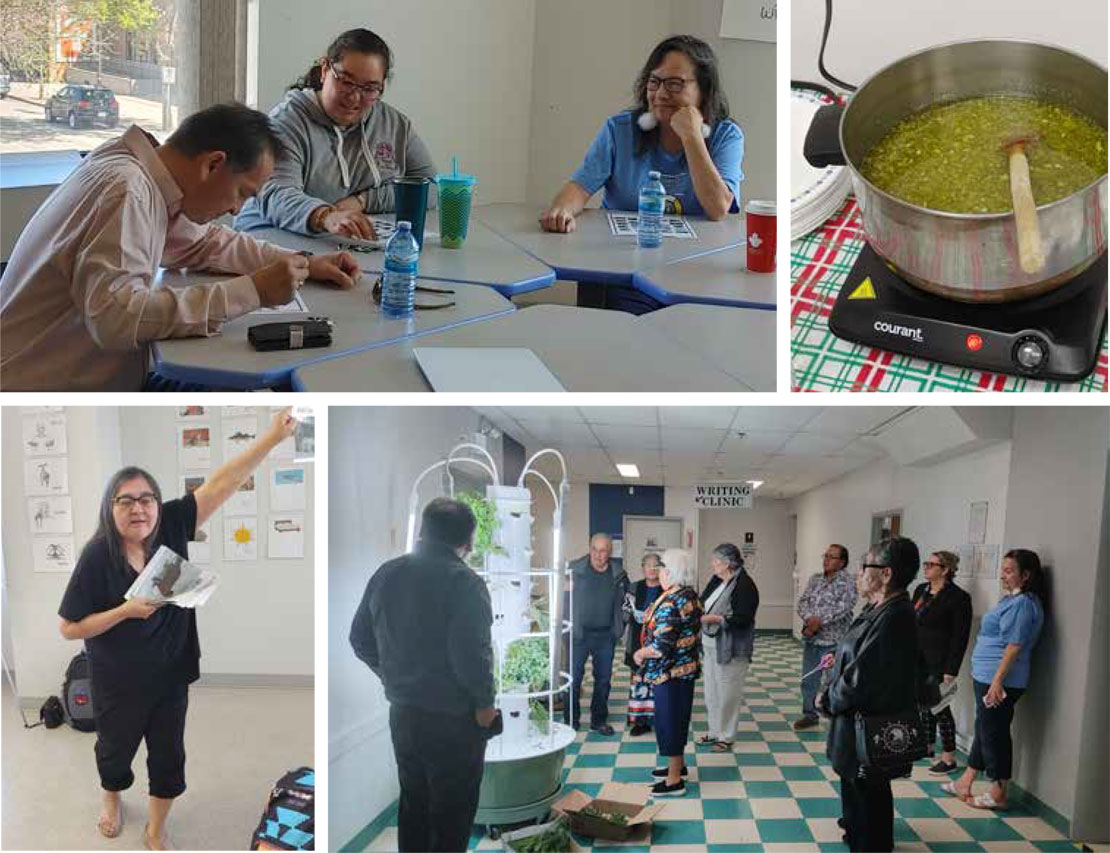First Nations University of Canada (FNUniv) Northern Campus, located in Prince Albert, received funding for two projects - Elders Cultural Traditional Based Activities and Elder Self-Care Medicine Teaching. Elders are the foundation of FNUniv. They provide wise counsel, ceremonies, and teachings for our students, individually and in classes.
However, there is an increasing expressed desire from our students for more Elder cultural/traditional based activities. Thus, a request to assist the Elders in the delivery of such activities for ribbon skirt/shirt making, drum/rattle making, tanning hides, and dream catcher making was presented. Additionally, The Elder involvement at our University is primarily offered through student emotional and spiritual support.
Land-based teachings require additional funding to offer activities for student learning. In 2020, Northern Campus received a hydroponic tower to support growing medicines for staff, students, and Elders. From this tower, Northern Campus produces medicines and through the second project, offered medicines to support self-care.
Student stress is the subject of most University student service programs and research studies. FNUniv Northern Campus has the unique opportunity of prioritizing land-based activities to address student stress. We have also been made aware that staff stress has increased due to reduced funding, pandemic consequences, and reduced human resources. The need to local teachings on how to address stress using accessible materials and practices is needed. This program will benefit the staff and students by:
- teaching them how to access, harvest, and produce self-care medicines/products
- understand spiritual protocols and meanings of these activities
- strengthen Indigenous identity
- ability to teach these activities to their children, relatives, and friends
- create connections between students and Elders to foster access to Elders for emotional and spiritual support; and
- offer land-based self-care teachings.
Submitted by Carrie LaVallie
Associate Professor Indigenous Health
Chair Northern Campus Cultural Committee
